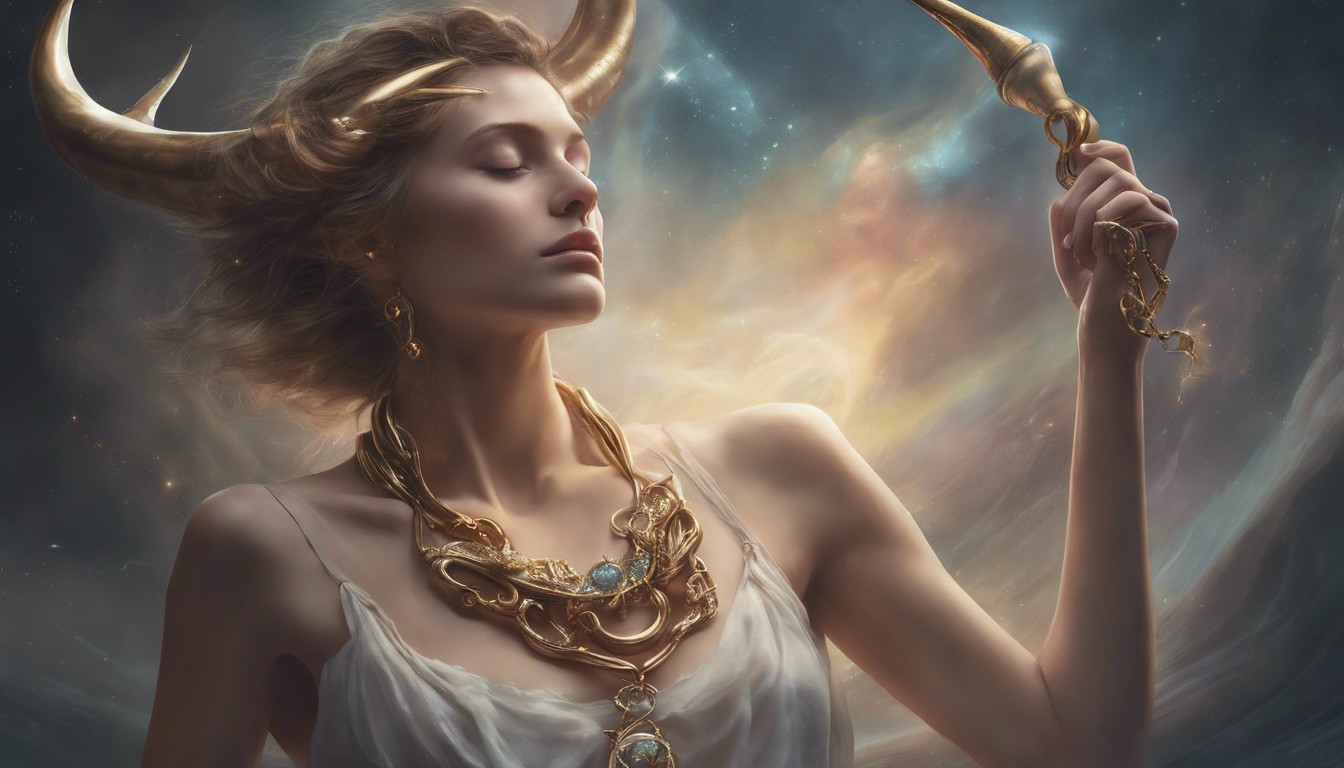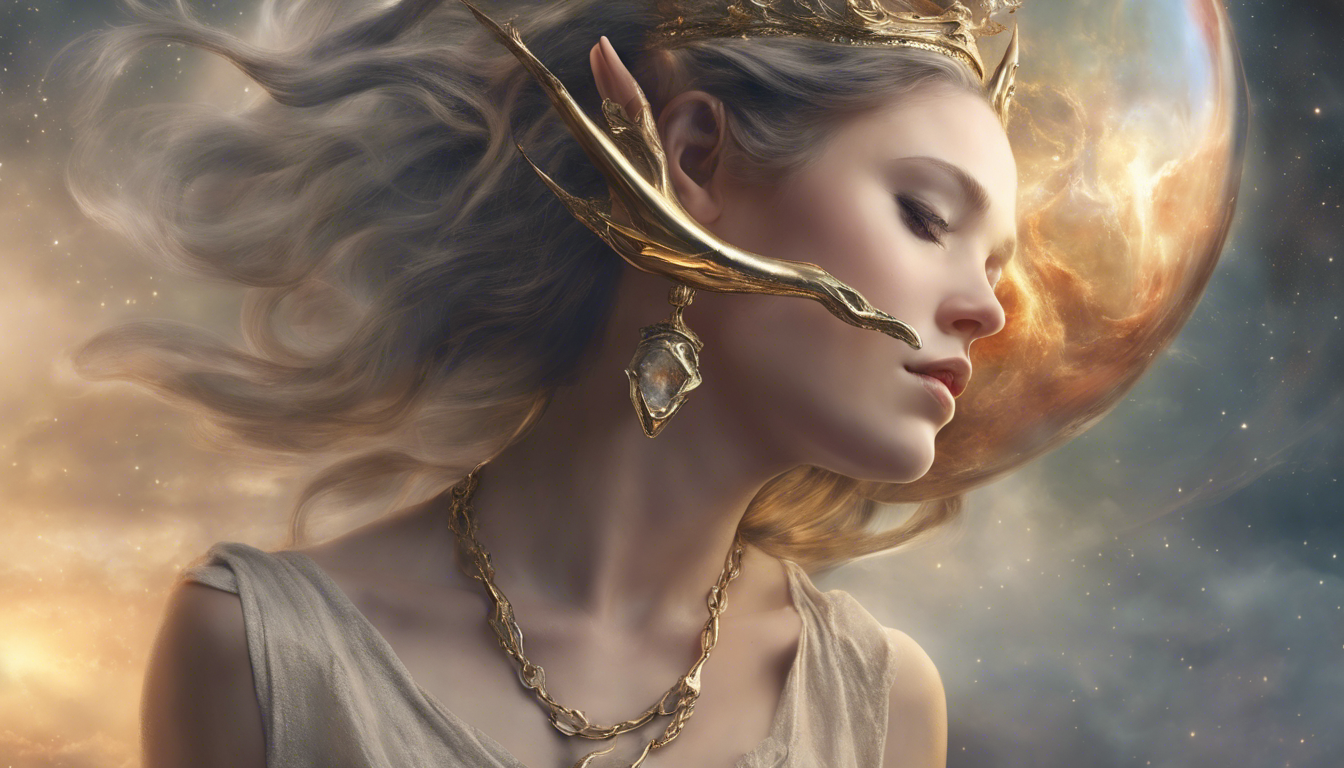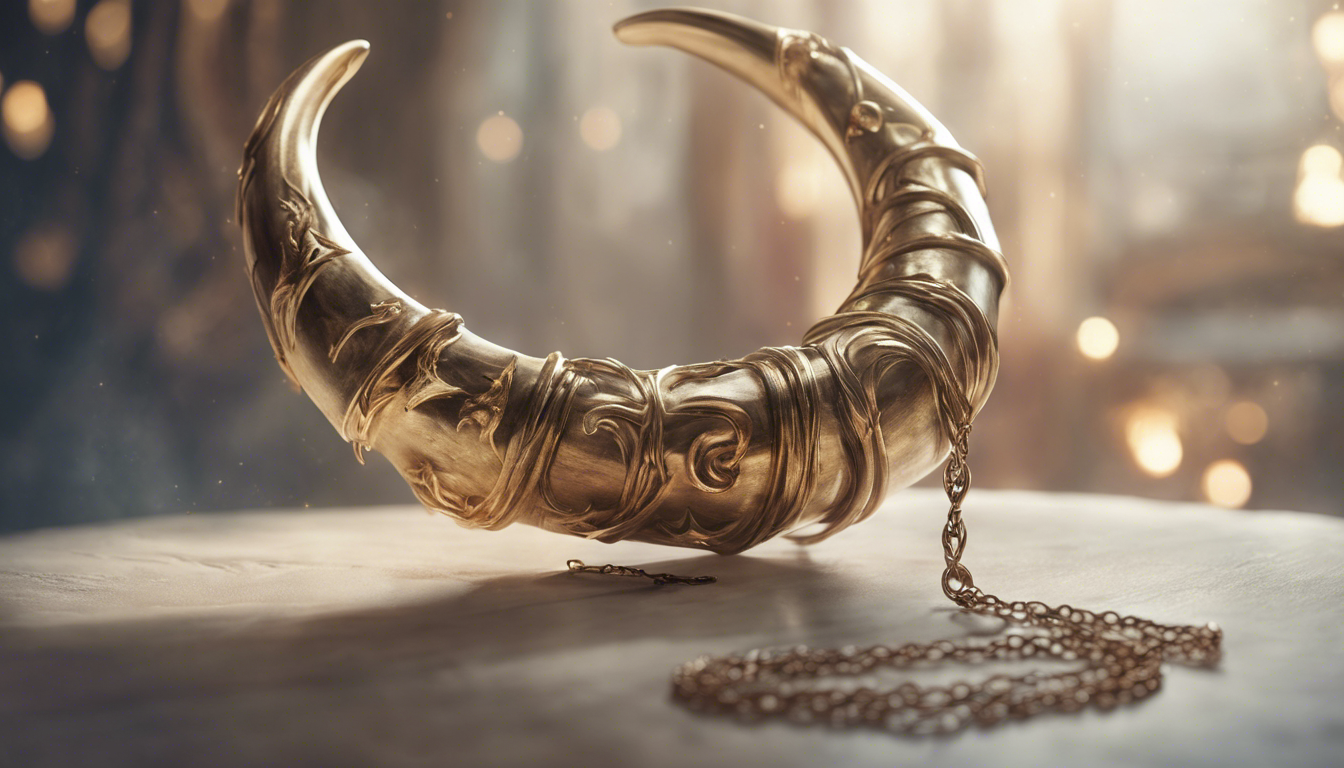The Origins of the Italian Horn Necklace
The Italian horn necklace is a popular symbol of luck and protection in Italian culture. Also known as the cornicello or corno, this iconic piece of jewelry holds a rich history and fascinating origins.
Ancient Superstitions
The belief in the power of horns traces back to ancient times, where horns were associated with various mythological and spiritual ideas. In ancient Egypt, for example, the image of the horned god Khnum symbolized fertility and creation. Similarly, the Greeks believed that horns had protective powers and could ward off evil spirits.
Italian Folklore
In Italy, the fascination with horns continued through folklore and superstition. The tradition of wearing a cornicello as a talisman against the evil eye can be traced back to the ancient Greeks and Romans. It was believed that the horn-shaped amulet would protect the wearer from curses, negativity, and misfortune.
Southern Italian Roots
The Italian horn necklace became particularly popular in Southern Italy, where it is still widely worn today. The horn is often made from gold or silver and worn as a pendant on a chain. It is believed to bring good luck, fertility, and prosperity to the wearer.
Symbolism and Meaning
The Italian horn necklace holds multiple symbolic meanings. It is often associated with strength, power, and protection. It is also believed to bring good fortune and ward off the evil eye, a malevolent gaze believed to cause harm or misfortune. Additionally, the horn is seen as a symbol of fertility, making it a popular gift for expecting mothers.
Modern Adaptations
While the traditional Italian horn necklace is still cherished and worn for its cultural significance, it has also undergone modern adaptations. Contemporary designs feature different materials, styles, and embellishments, catering to various tastes and fashion preferences.
The Italian horn necklace is more than just a piece of jewelry. It represents a deep-rooted cultural belief in luck, protection, and spirituality. Whether worn as a personal talisman or as a fashion statement, the Italian horn necklace continues to captivate individuals with its fascinating origins and timeless appeal.
A Symbol of Protection and Good Luck

The Power of Symbols
Symbols have been used since ancient times to convey deep meaning and represent various concepts and ideals. One such symbol that holds great significance is that of protection and good luck. This symbol is believed to have the power to ward off negative energies and bring good fortune to those who possess or encounter it.
The Evil Eye
One of the most well-known symbols of protection and good luck is the Evil Eye. The Evil Eye is a talisman believed to protect against the malevolent gazes of others. It is often depicted as a blue eye with a white iris, surrounded by a dark border. The Evil Eye is believed to have the power to deflect negative energy and evil intentions directed towards the wearer.
The Hamsa Hand
Another popular symbol of protection and good luck is the Hamsa Hand. The Hamsa Hand, also known as the Hand of Fatima, is a palm-shaped amulet often used in jewelry and home decor. It is believed to bring good fortune and protect against the evil eye. The Hamsa Hand is often embellished with various symbols and motifs, such as an eye, a fish, or words of blessing.
The Four-Leaf Clover
The four-leaf clover is another universally recognized symbol of good luck. It is believed that finding a four-leaf clover brings good fortune and positive vibes. Each leaf of the clover is said to represent something: faith, hope, love, and luck. The four-leaf clover is often seen as a rare and precious symbol, and many consider it a lucky charm to carry or keep in their homes.
The Lotus Flower
In many cultures, the lotus flower is considered a symbol of protection and good luck. The lotus flower is known for its ability to grow in muddy waters and emerge unscathed, symbolizing resilience and spiritual enlightenment. It is often associated with purity, divinity, and positive transformation. The lotus flower is widely used in religious and spiritual practices, and its image can be found in art, jewelry, and tattoos.
The Symbol of the Cross
The symbol of the cross holds great significance in many religions and is often associated with protection and good luck. The cross is a powerful symbol of faith, sacrifice, and divine protection. It is believed to provide spiritual strength and ward off evil spirits. The cross can be found in various forms, such as crucifixes, rosaries, and pendants, and is often worn or displayed in homes as a symbol of protection.
Symbols have a profound impact on our beliefs and perceptions. The symbols of protection and good luck discussed in this article are just a few examples of the many symbols that hold deep meaning and significance in various cultures. Whether it is the Evil Eye, the Hamsa Hand, the four-leaf clover, the lotus flower, or the symbol of the cross, these symbols serve as reminders of our beliefs and aspirations, while also providing a sense of comfort and protection in our daily lives. Embrace the power of these symbols and invite luck and positive energy into your life.
The Cultural Significance of the Italian Horn Necklace

Italian culture is rich and vibrant, with a long history of traditions and symbols that hold deep meaning. One such symbol is the Italian horn necklace, also known as the cornicello. This iconic piece of jewelry has been worn for centuries and holds great cultural significance. Let’s explore the origins and meaning behind this unique accessory.
The Italian horn necklace has roots in ancient Roman mythology and superstition. It is believed to have originated from the ancient Etruscan civilization, which predates the Roman Empire. The horn itself is often associated with the goddess Venus, who was the Roman goddess of love and beauty.
In Roman mythology, the horn is said to represent fertility and good fortune. It was believed to have the power to ward off evil spirits and protect the wearer from harm. The shape of the horn is reminiscent of a crescent moon, which has long been associated with femininity and the divine feminine energy.
The Symbolic Meaning of the Italian Horn Necklace
Beyond its origins, the Italian horn necklace holds symbolic meaning for those who wear it. It is often seen as a talisman or amulet, thought to bring good luck, prosperity, and protection to the wearer.
In Italian culture, the cornicello is frequently associated with the concept of “malocchio,” which translates to “evil eye” in English. The evil eye is believed to be a curse caused by someone’s malevolent gaze. The Italian horn necklace is worn as a way to counteract the effects of the evil eye and protect against its negative energy.
Additionally, the Italian horn necklace is seen as a symbol of Italian pride and heritage. It is often worn as a way to connect with one’s Italian roots and as a reminder of the rich cultural history of Italy.
Modern Interpretations and Styling
While the Italian horn necklace has deep historical and cultural significance, it has also evolved with modern fashion trends. Today, you can find a variety of interpretations and styles of the horn necklace, ranging from traditional to contemporary designs.
Many jewelry designers incorporate the Italian horn into their collections, using precious metals, gemstones, and unique shapes to create stunning and fashionable pieces. The horn pendant may be paired with other symbolic charms or religious symbols to add even more meaning to the necklace.
The Italian horn necklace is more than just a piece of jewelry; it is a cultural symbol rooted in ancient mythology and superstition. It represents fertility, protection, and a connection to Italian heritage. Whether as a talisman against the evil eye or a fashionable accessory, the Italian horn necklace continues to hold immense significance in Italian culture and beyond.
Modern Interpretations and Personal Meanings
Modern interpretations and personal meanings play a significant role in spirituality. While traditional religious practices have their own interpretations and established meanings, many individuals today find solace and guidance in crafting their own unique interpretations and personal meanings. This allows them to connect with their spirituality in a way that resonates with their personal beliefs and experiences.
Interpretations versus Dogma
One of the reasons why modern interpretations and personal meanings have gained popularity is the desire for spiritual freedom and autonomy. In the past, religious dogma often dictated strict interpretations of sacred texts and rituals, leaving little room for individual interpretation. However, as society has evolved, people have sought to explore spirituality in a more personal way.
With modern interpretations, individuals are able to delve into various spiritual traditions and take what resonates with them, leaving behind what does not. This allows for a more flexible and adaptable approach to spirituality, where one can gather inspiration from different sources and create a spiritual practice that reflects their unique beliefs and values.
Creating Personal Meanings
Personal meanings in spirituality involve finding significance and purpose in various aspects of life. It is about infusing everyday experiences with a sense of the divine and finding meaning in the mundane. While traditional religions often provide guidelines for finding meaning, individuals today are encouraged to seek their own paths.
Many people find personal meaning through practices such as meditation, yoga, and mindfulness. These practices can help individuals connect with their inner selves, tap into their intuition, and gain clarity on their purpose and values. By exploring their own beliefs and experiences, individuals can create personal meanings that give their lives a sense of depth and purpose.
Benefits of Modern Interpretations and Personal Meanings
Embracing modern interpretations and personal meanings in spirituality can have several benefits. Firstly, it allows for a more inclusive and diverse spiritual landscape, where individuals from different backgrounds can find connection and commonality. This promotes understanding and respect among people with different beliefs.
Secondly, modern interpretations and personal meanings foster individual growth and self-discovery. By exploring one’s own spirituality, individuals can gain a better understanding of themselves and what is meaningful to them. This can lead to personal transformation and a deeper sense of fulfillment.
Lastly, modern interpretations and personal meanings allow individuals to develop a more authentic spiritual practice. By connecting with their own beliefs and experiences, individuals can create a spiritual path that aligns with their true selves. This can enhance their overall well-being and provide a greater sense of purpose in life.
In conclusion, modern interpretations and personal meanings have become increasingly important in spirituality. They provide individuals with the freedom to explore their own beliefs and create a spiritual practice that resonates with their unique experiences. By embracing modern interpretations and personal meanings, individuals can find deeper meaning and fulfillment in their spiritual journey.


Article written by Dera
Greetings, I am Dera, a 35-year-old individual with a deep passion for spirituality. Through my website, I aim to share my insights and knowledge to help others on their spiritual journey. Join me on the path to inner peace and enlightenment.